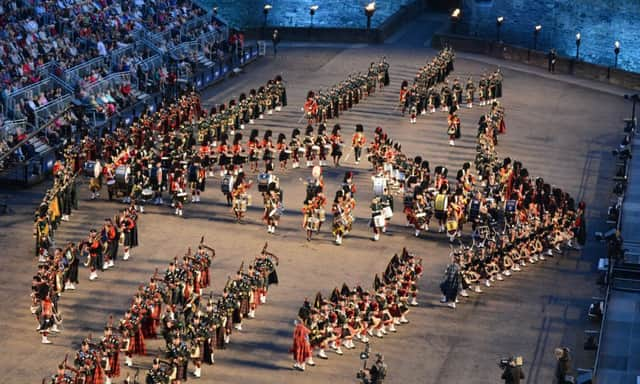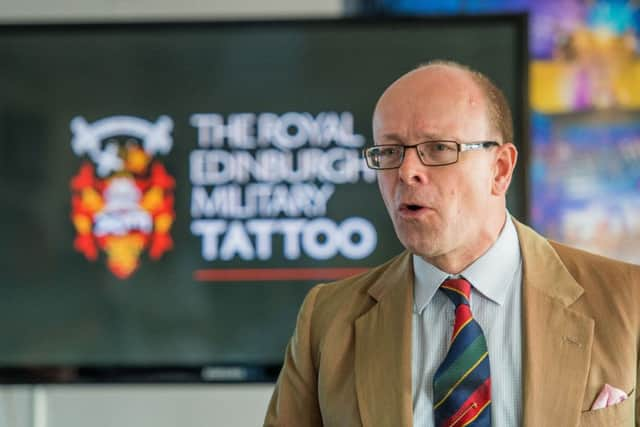Tattoo chief's fury over police bill


Brigadier David Allfrey has compared the current system to “legalised racketeering” as he revealed he was having to fork out an average of £49 an hour for each officer on duty at the event.
He said the Tattoo, which dates back to 1950 and sells more than 220,000 tickets each year, was effectively “subsidising the police” after being “over-charged” in recent years.
Advertisement
Hide AdAdvertisement
Hide AdBrigadier Allfrey, whose event is now estimated to be worth more than £100 million to the economy, has also warned that attempts to grow and expand the event were being hampered by its policing bill.


Brigadier Allfrey has called for a “sensible” nationwide debate about the charging system, which has affected a number of music festivals, as well as Edinburgh’s Hogmanay celebrations, in recent years.
He revealed the number of police covering the Tattoo had been reduced following negotiations with senior officers after the introduction of a new system for charging for the use of officers for commercial events and festivals, introduced to coincide with the creation of a national force.
Police Scotland works with organisers to decide on an appropriate number of officers, based on a charging system set up and reviewed regularly by the Scottish Police Authority.
Advertisement
Hide AdAdvertisement
Hide AdHowever Brigadier Allfrey, who retired from the Army to take over the running of the Tattoo seven years ago, has accused them of effectively “marking their own homework” with the charging regime.


He said: “The police do an extraordinary job at looking after events and festivals. It is entirely proper that an event or festival of any size should be reasonably expected to pay for public services. What I am not convinced by is the reasonableness of the level of the charges for policing.
“My argument is that it is unreasonable to charge events and festivals anything more than any extra costs they are incurring. They shouldn’t be subsidising the police.”
He added: “I’m not suggesting for a moment it is legalised racketeering but it amounts to pretty much the same thing. It’s effectively the police and the licensing authority marking their own homework which doesn’t seem to sit quite right.”
Advertisement
Hide AdAdvertisement
Hide AdBernard Higgins, assistant chief constable at Police Scotland, said: “We have a consistent approach regarding the charging for police services at events, regardless of where they take place in Scotland.
“Where police services are provided for commercial events, organisers should expect to be charged for the full policing costs associated with the event.
“We will continue to work with event organisers to identify opportunities to minimise policing costs.”